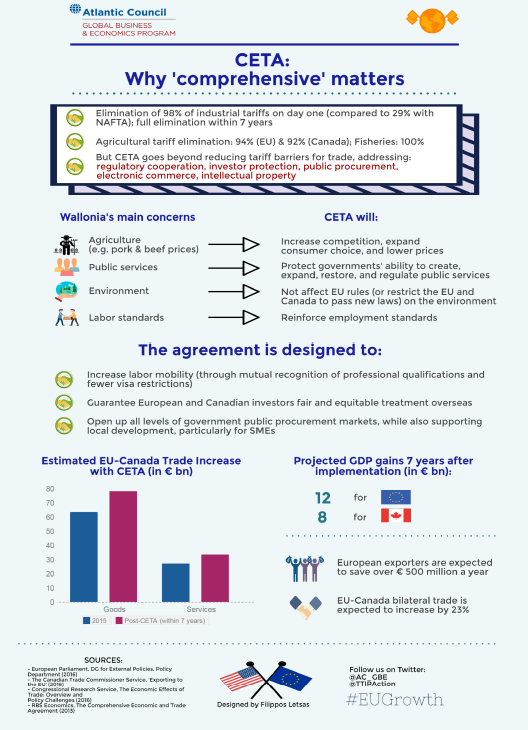On October 14th, the regional parliament of Wallonia, a French-speaking region of 3.6 million people in Belgium, voted to block the Comprehensive Economic and Trade Agreement (CETA), a proposed trade agreement between the European Union (EU) and Canada, which has been negotiated for over 7 years. To implement the agreement, it must be ratified by 28 national parliaments and 10 other regional assemblies and upper houses in the EU; Belgium cannot sign the agreement without Walloon support. At the end of last week, the EU issued an ultimatum urging Wallonia to end its objection to the agreement before Monday. Wallonia, which calls for stronger safeguards on labor, environmental, and consumer standards, rejected the ultimatum, threatening to cancel an EU-Canada summit planned for Thursday (October 27) to sign the accord.

CETA promises to eliminate tariffs on 98% of goods traded between the EU and Canada once implemented, strengthening cooperation, promoting investment, and creating new jobs across both sides of the Atlantic. Within seven years of CETA’s implementation, Gross Domestic Product (GDP) for Canada and the EU is projected to increase by €12 billion and €8 billion respectively, while bilateral trade is expected to increase by about 23%. However, this comprehensive agreement goes beyond reducing tariff barriers for trade. CETA will foster regulatory cooperation, allow Canadian and European companies to bid for public contracts, and support the development of electronic commerce between the two parties. CETA is designed to reinforce employment standards, increase labor mobility, and guarantee investors’ fair and equitable treatment overseas. Responding to critics’ main concerns about CETA, the EU has stressed that the agreement would have no effect on existing EU rules regarding public services, food safety, and the environment.